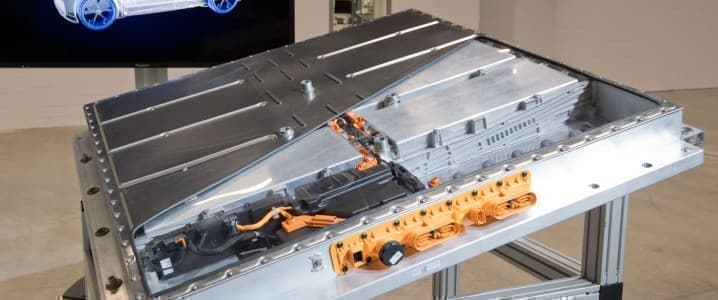Electric vehicles have been touted as the greatest invention after sliced bread mostly because of the critical role a switch to emission-free vehicles would play in the decarbonization of human civilization. But as is often the case with great inventions, the EV revolution comes at a price. And this price includes carbon emissions.
Much has been written, calculated, and presented as infographics about the lifetime emissions of electric vehicles. While some emissions have been grudgingly admitted by the technology's proponents, the issue of EV-related carbon emissions has largely been limited to discussions among EV skeptics.
Not anymore.
In February this year, Bloomberg opinion columnist David Fickling wrote that Tesla was boosting its own carbon footprint by expanding its operations in China and India. The carbon footprint of an EV, Fickling said, was not only a by-product of the manufacturing process. It was also a by-product of its use in countries where a lot of electricity is generated from fossil fuels. The more EVs in such countries, the logic goes, the more fossil fuel-made electricity is used for charging them, ultimately increasing these EVs' carbon footprint.
Related: It’s Too Late To Avoid A Major Oil Supply Crisis
One might argue that you can't make an omelet without breaking some eggs. Still, it appears that big carmakers are trying to make an omelet while keeping their eggs whole. The Wall Street Journal's Stephen Wilmot wrote earlier this month that Volkswagen, Daimler, BASF, and smartphone manufacturer Fairphone had set up a "responsible lithium partnership" to ensure that most of the lithium mined in the world is mined responsibly. Responsible mining, Wilmot aptly noted, normally means that the output will be more expensive—at a time when carmakers need to make their EVs as cheap as possible to motivate mass adoption.
It is a paradoxical situation. On the one hand, carmakers are working hard to secure strong green credentials for their products. This is a costly endeavor in the best of times but even more so right now when pretty much everyone is forecasting shortages of various raw materials, including copper, which features heavily in electric car engines. Lithium prices are on a tear despite abundant supply. And the secure—and responsible—supply of critical minerals is causing headaches from Washington to Berlin.
On the other hand, despite already generous subsidies for EV buyers, the vehicles that the subsidizers want to push remain stubbornly expensive. The main culprit behind this slow decline in EV prices is the battery.
Related: BP Claims High Oil Prices Will Benefit Its Strategy
"The data is pointing to the battery cost curve coming down much more slowly than hyped. There are a lot of bottlenecks and challenges that people are ignoring," the WSJ's Wilmot quotes analyst Mio Kato as saying.
This is not something you would normally read about in an EV story. EV stories tend to be about how in a decade or two, there will be hundreds of millions of them on the roads, helping bring down the emissions our species has been generating for more than a century.
Yet more and more stories are now surfacing about the copper shortage, for example, prompted by extended underinvestment in new mines coupled with that same much-hyped advent of electric vehicles. And it's not only electric vehicles. Renewable energy generation is also a copper-intensive industry, meaning demand for the basic metal is set to soar, with some even calling copper the new oil.
There is no scenario where this means cheaper EVs.
The push for responsible mining will also add to the final price of EVs. It may add a lot if it continues alongside the expected boom in mining activity. The BBC, in a recent article, wrote that "The public will need to accept greater mining activity if the world is to meet the challenge of going green."
The public, however, is unlikely to just sit back and accept more mining. Take the United States, for example. The president of one of the biggest consumers of battery minerals reportedly plans to rely on ally countries for the supply of these minerals. The reason for the decision, which goes counter to campaign promises made to mining communities, was "part of a strategy designed to placate environmentalists," Reuters reported, citing sources in the know. Instead of mining, they said, the administration would focus on the processing of the minerals domestically.
There is another cost-related issue, too, when it comes to EVs. Their batteries are not everlasting. At some point, they will need to be recycled. And this need to recycle EV batteries—tens of millions of them if the sales plans of carmakers pan out—will also need to be factored in the price of the vehicles.
"When you look at the way the U.S. has approached the recycling opportunity, what's very evident is we need to invest in that capacity, we need to take a more proactive approach," one Biden administration official told Reuters earlier this month.
Investments are made in anticipation of certain returns. These returns are dependent on the price of the goods that are being made, processed, or, in this case, recycled. What's true about battery recycling is also true about EV production. A responsibly made EV would certainly grab the attention of a wealthy, environmentally conscious Californian. What it won't do is grab the attention of a hundred million not-so-wealthy buyers. The EV revolution, it turns out, is a lot more complex than it looks on the surface.
By Irina Slav for Oilprice.com
More Top Reads From Oilprice.com:
- The Best Oil Stocks As Prices Rebound
- Judge Blocks Biden’s Ban On Oil Leasing
- $100 Oil Predictions Soar As Analysts Warn Of Supply Crisis


















